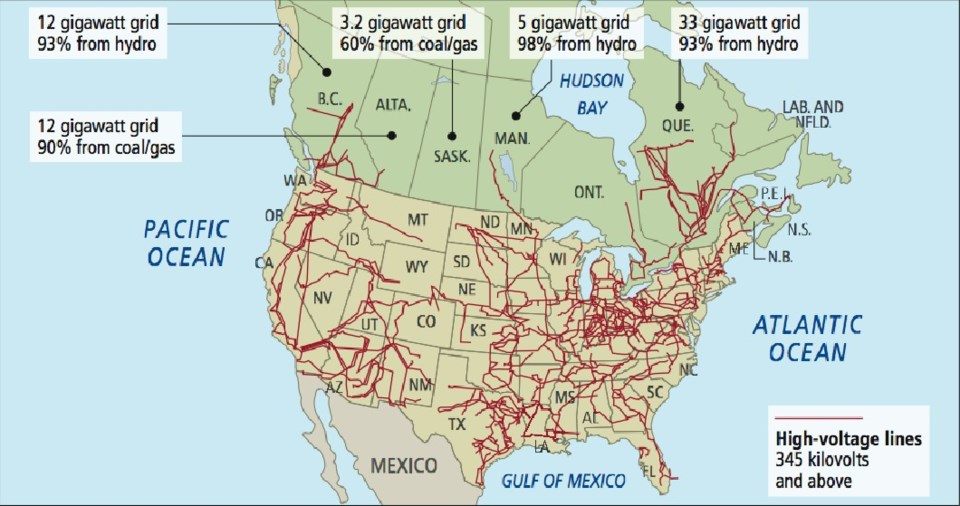To illustrate the benefits of integrating electrical grids across borders, Tom Pederson refers to a very hot day in July 2012.
“There were rolling brownouts in Alberta to accommodate their energy needs — likely due to things like air conditioning running,” said Pederson, the executive director of the Pacific Institute for Climate Solutions at the University of Victoria.
“Yet, next door in B.C., our dams were spilling over because of a record snowfall that year. … If we had better integration, our hydro could have helped them.”
The example is just one of the reasons the institute has launched a major study into electrical grid integration. The study will also examine electrical grid reliability, cost savings and, most significantly, reducing carbon emissions with a shift away from fossil fuels and toward clean energy.

“We know climate change is happening and we have to find ways to reduce emissions of carbon dioxide,” Pederson said.
The five-year, $1.5-million study is called the 2060 Project: Energy Pathways for British Columbia. The institute was founded in 2008 with an endowment from B.C.’s Environment Ministry with the purpose of applying a multi-disciplinary approach to climate change.
Led by Andrew Rowe, a professor at UVic, the study will look 50 years into the future, using computer models and algorithms to connect energy sources in B.C. and Alberta. These connections will be tested and evaluated for outcomes that save money and resources and lower emissions. Results are expected within the first two years.
“The idea is to look beyond the regulation and political boundaries to see what’s possible,” Rowe said. He is working with a team of students and analysts in the initial stages of the study, which will include expertise from hydrologists, regional climate experts, senior utility planners, electricity system operators, regulators and policy-makers.
B.C. and Alberta are the starting point for the study, which will later include the entire country and eventually North America.
“If we can show the real benefits for long-term energy systems, this provides incentives for policy and regulation changes,” Rowe said.
He said the study is especially important as electricity needs increase in the provinces.
“This is the kind of thing we need to very seriously look at right now,” said Nigel Protter, from the B.C. Sustainable Energy Association.
“The trick is to do the economics that support it and look at how you bridge the different grids.”


